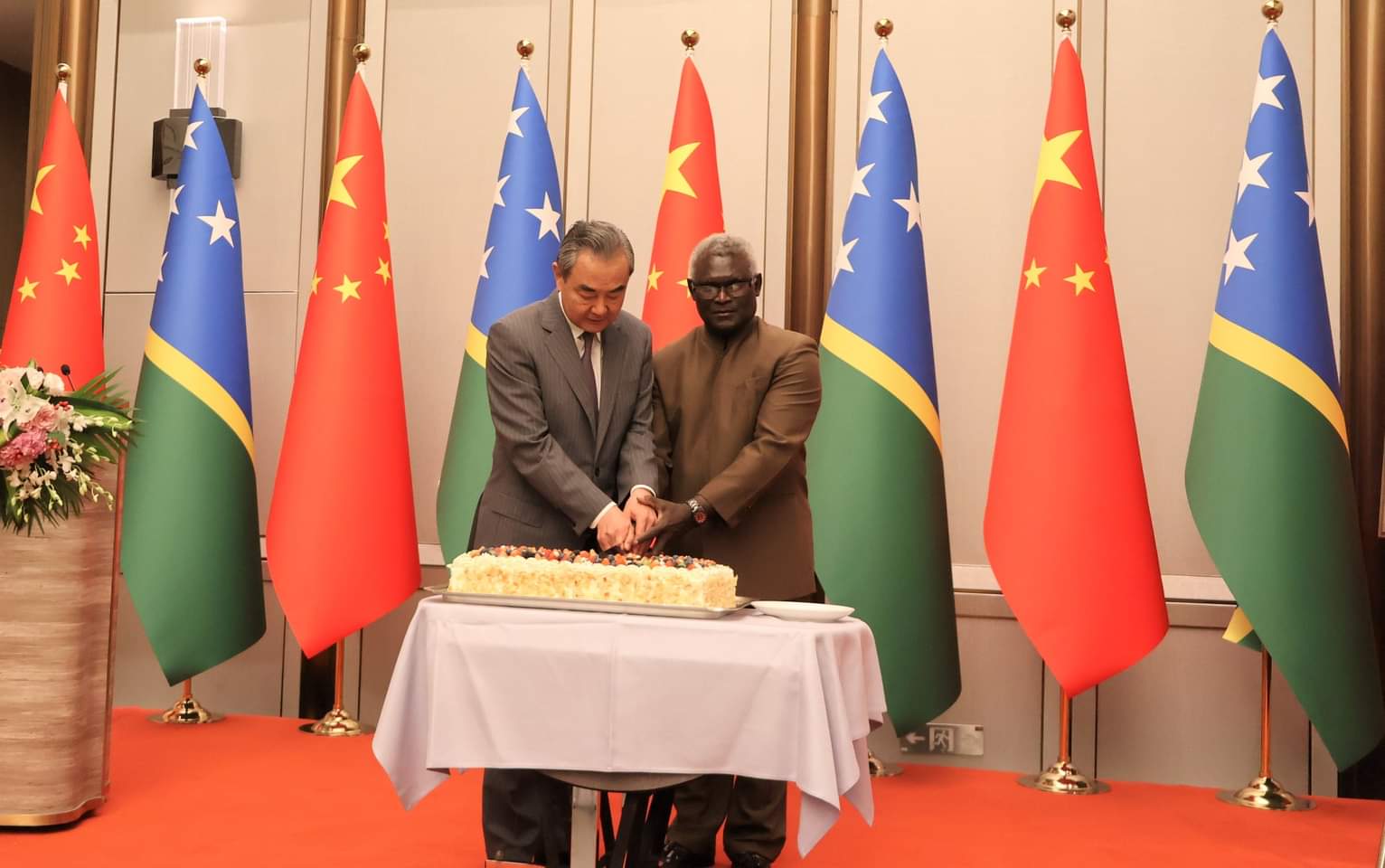movingstarvoices.org – The Solomon Islands, a strategic Pacific archipelago, has become a focal point in the geopolitical rivalry between China and Western nations, particularly the United States and Australia. Since shifting its diplomatic recognition from Taiwan to the People’s Republic of China in 2019, the Solomon Islands has seen a significant deepening of its ties with Beijing, which has alarmed Western powers concerned about China’s growing influence in the region.
China’s Growing Influence
Diplomatic and Economic Ties
The diplomatic relationship between the Solomon Islands and China has evolved rapidly since 2019. China has become the Solomon Islands’ largest trading partner, providing substantial economic aid and infrastructure development. Key projects include the construction of the Pacific Games Stadium and the Solomon Islands National University dormitories, which have become significant local landmarks. China’s Belt and Road Initiative (BRI) has been a cornerstone of this cooperation, with the Solomon Islands joining the BRI shortly after establishing diplomatic ties.
Security Agreements
A major point of contention has been the security agreement signed between the Solomon Islands and China in 2022. This pact has raised concerns among Western nations, who view it as a potential strategic foothold for China in the Pacific. The Solomon Islands government has repeatedly denied that the agreement poses a threat to regional security, emphasizing its sovereign right to choose its own security partners.
Western Reactions
Unease and Countermeasures
The deepening ties between the Solomon Islands and China have fueled unease in Washington and Canberra. Western nations have expressed concerns about China’s assertive influence in the region and have taken steps to counterbalance Beijing’s growing presence. This includes increased economic aid, security cooperation, and diplomatic efforts to strengthen ties with the Solomon Islands.
Sovereignty and Autonomy
Despite the Western concerns, the Solomon Islands has asserted its sovereignty and autonomy. The government has emphasized that its decisions are based on national interests and have been made independently. This stance has been supported by the Solomon Islands’ leadership, who have repeatedly stated that their relationship with China is beneficial and does not compromise their sovereignty.
Conclusion
The Solomon Islands’ diplomatic relations with China and the West highlight the complex dynamics of geopolitical competition in the Pacific. While China’s economic and security engagements have significantly bolstered its influence, Western nations continue to vie for strategic advantage. The Solomon Islands, navigating these competing interests, has demonstrated a commitment to maintaining its sovereignty and pursuing its national interests. As the geopolitical landscape evolves, the Solomon Islands’ role in this rivalry is likely to remain a critical focus for both China and the West.
